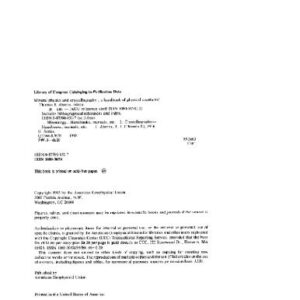The field of physical anthropology deals with issues that everyone thinks about and cares about: our origins, our evolutionary history, and why we look and act the way we do. The field has benefited greatly by increased attention from the media, from popular books, and from several television series. There is a multitude of topics considered by physical anthropologists, including human and primate origins, primate societies, growth and development, genetics, forensic science, and nutrition. Most physical anthropology graduate students have traditionally aspired to research and/or teaching careers at a university. However, during the last decade there has been an increased interest in non-traditional careers outside the ivory tower, primarily because the number of new physical anthropology Ph.D.s exceeds the number of jobs available in anthropology departments.Because physical anthropology encompasses a variety of research interests, students are broadly trained and have a wealth of talents and skills that make them competitive for non-academic careers. However, pursuing opportunities outside the academy requires thoughtful planning and training. This collection serves as a reference for students contemplating a career in physical anthropology within or outside the academy. Several rewarding career paths that physical anthropologists have chosen are described. Students will understand how anthropological theory, methods, and training are applicable to job responsibilities and career development. This book will also help departments of anthropology design coursework and training programs that will make their students more competitive. In sum, the future of anthropology seems promising given the discipline’s broad scope and concern for issues faced by contemporary society, and physical anthropologists will be playing an increased role in many arenas.

![[PDF] A guide to careers in physical anthropology Alan S. Ryan](https://pdfelite.com/wp-content/uploads/2024/04/28bd5a45b5c11006fea2ca890304f902-d.jpg)




Reviews
There are no reviews yet.